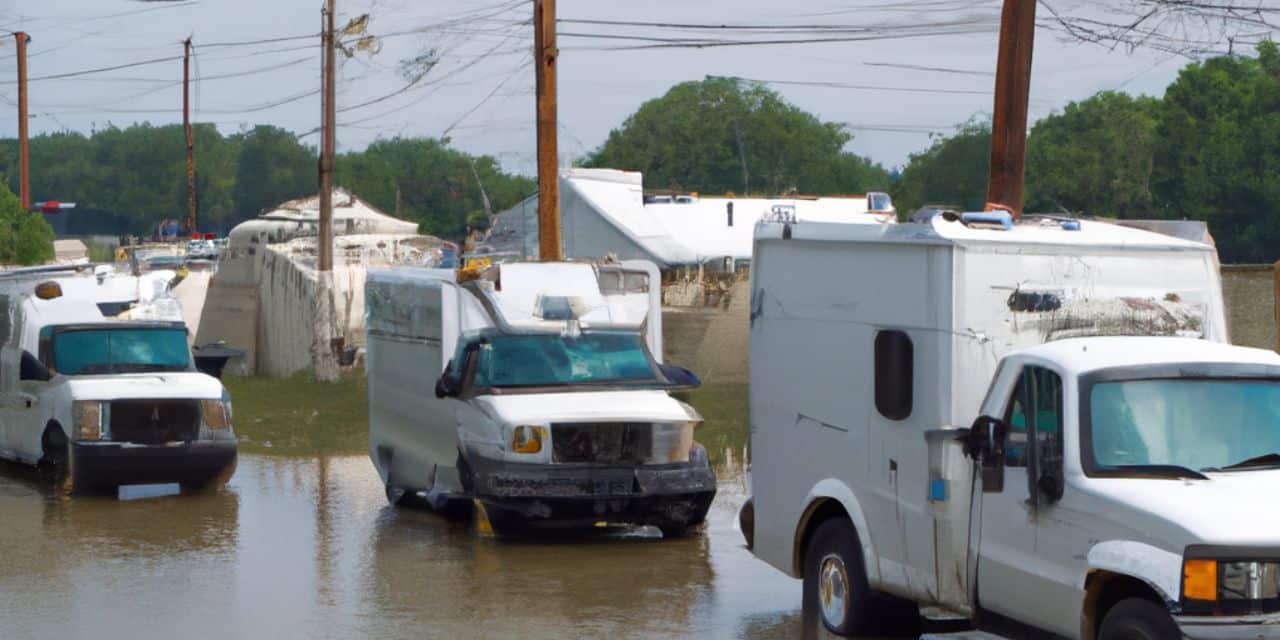Senator Chuck Schumer is demanding immediate action after the Donald Trump administration canceled FEMA’s BRIC program, stripping New York of over $325 million in disaster resilience funding.
What Is the BRIC Program and Why It Matters

The Building Resilient Infrastructure and Communities (BRIC) program, signed into law in 2020 during Trump’s first term, was designed to help states and local governments reduce risks from extreme weather. Since its launch, BRIC has distributed over $5 billion in federal grants nationwide, with $325 million allocated to projects in New York.
The program focused on:
- Flood mitigation
- Power source creation
- Road elevation
- Drainage system improvements
Schumer helped create BRIC and is now calling its termination a “massive risk to public safety.”
FEMA Declares BRIC “Ineffective” Amid Cuts
In a statement issued April 7, 2025, FEMA labeled BRIC as “wasteful and ineffective,” stating the program was being canceled to eliminate government waste. The agency also cited concerns that BRIC was “more concerned with political agendas than helping Americans affected by natural disasters.”
This move will result in:
- The revocation of $325.5M in unfunded resilience projects
- Potential loss of $56M in ongoing infrastructure work
- Cancellation of all BRIC applications from FY 2020–2023
- A redirection of funds back to the U.S. Treasury
Projects Affected Across New York
Governor Kathy Hochul released a detailed list of high-impact projects now defunded by FEMA’s decision, including:
| Project Location | Project Type | Federal Funding Cut |
|---|---|---|
| Central Harlem (NYC) | Cloudburst Flood Mitigation | $50M |
| East Elmhurst (NYC) | Cloudburst Flood Mitigation | $50M |
| South Street Seaport (NYC) | Coastal Resilience | $42.4M |
| NYCHA Polo Grounds (NYC) | Coastal Storm Surge Barrier | $11.5M |
| Vischer Ferry Dam (Upstate NY) | Ice Jam Mitigation | $24M |
| Upper Minkel Dam (Westchester) | Flood Hazard Reduction | $731K |
| City of Buffalo | Building Code Modernization | $284K |
These projects aimed to strengthen infrastructure in flood-prone, disadvantaged, and climate-vulnerable areas.
Schumer: “Lives Are at Risk”
In a strongly worded letter to DHS Secretary Kristi Noem, Schumer stated:
“By ripping away over $300 million in funding for projects with no warning or explanation, FEMA is going against its mission and putting New Yorkers at risk.”
Schumer emphasized that BRIC provided a 13-to-1 return on investment, according to studies from the U.S. Chamber of Commerce and Allstate.
“Every $1 spent on disaster preparedness saves $13 in future damages, cleanup, and recovery,” Schumer added.
FEMA Cuts Impact Emergency Preparedness Statewide
Beyond New York City, the ripple effects of the BRIC elimination will hit communities across the state:
- Stormwater protection projects in Brooklyn housing developments
- Food supply resilience efforts in Hunts Point
- Building code modernization in Buffalo
- Critical drainage infrastructure upgrades in Queens and the Bronx
Mayor Eric Adams’ office said the cuts “pose serious risks to multiple communities,” while NYS Emergency Services Commissioner Jackie Bray called the decision “shortsighted and costly.”
Why Now? Trump Administration’s Broader Cuts to FEMA
The BRIC cuts are part of a broader rollback by the Trump administration, which has pledged to “streamline” FEMA’s functions. Secretary Noem previously stated the administration might seek to eliminate FEMA entirely, pushing responsibility to the states.
Critics say the move will devastate disaster-prone regions like New York that rely on federal infrastructure support to combat climate-driven crises.
Conclusion: Infrastructure, Safety, and the Path Ahead
The cancellation of FEMA’s BRIC program places billions in disaster resilience projects at risk—not just in New York, but nationwide. With tornadoes, hurricanes, and floods increasing in frequency and intensity, leaders like Schumer warn that slashing preparedness funding is a dangerous gamble.
“We cannot leave New York’s families and businesses to fend for themselves. These cuts must be reversed immediately,” Schumer urged.
New Yorkers now face an uncertain future as federal support for disaster readiness hangs in the balance.
